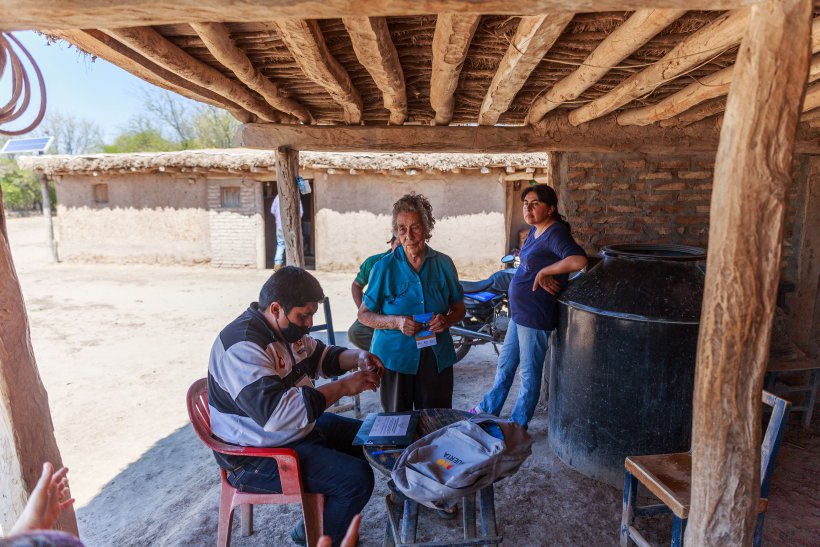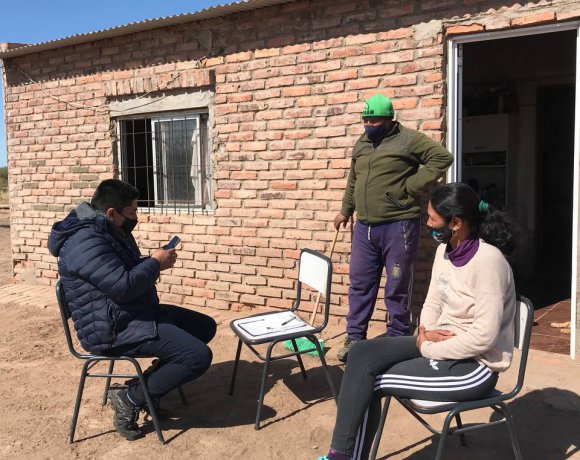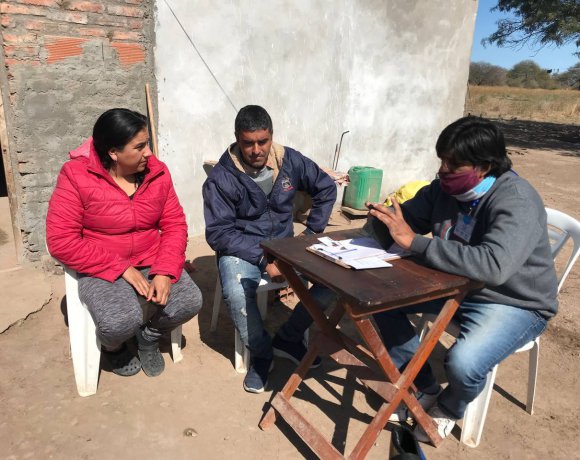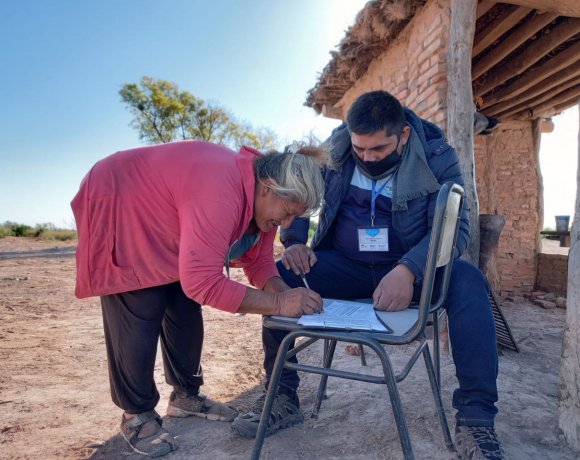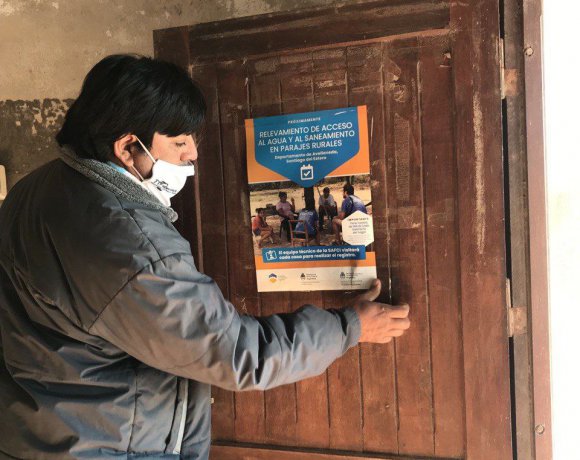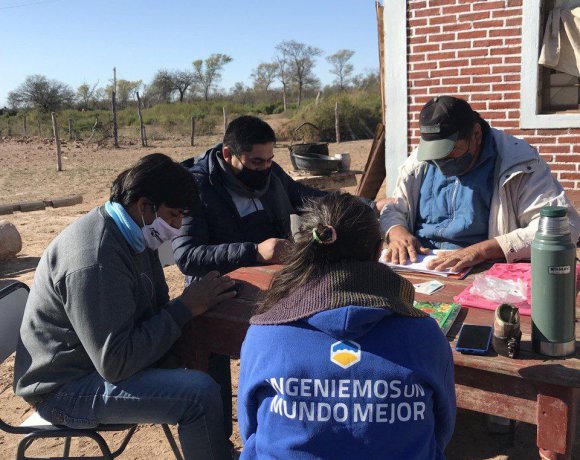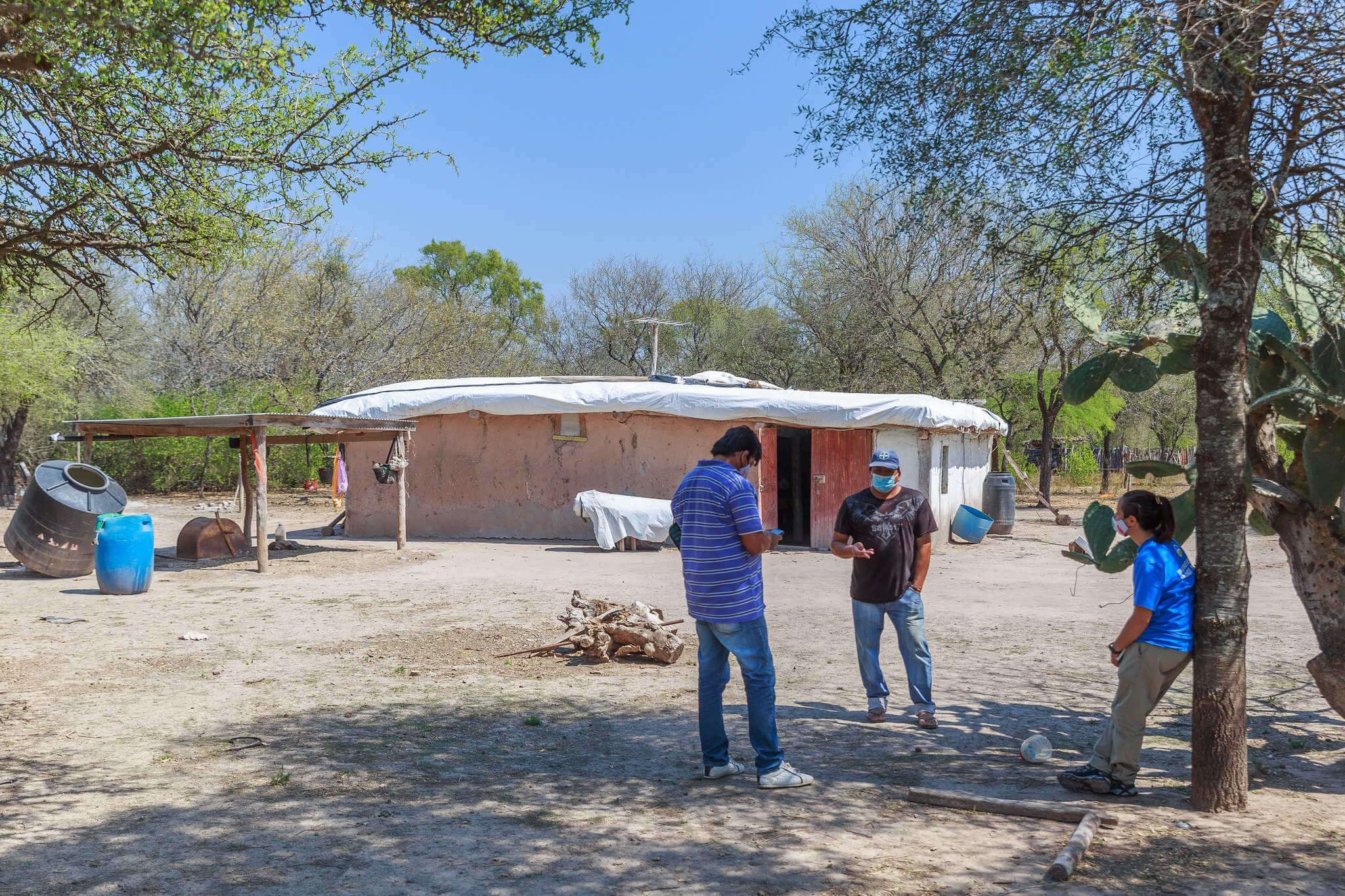Departamento de Avellaneda, province of Santiago del Estero.
We are carrying out a survey of the water and sanitation situation of 2500 families from 100 rural areas in south Santiago del Estero.
PROJECT IN EXECUTION
WORK LINE: WATER AND SANITATION
TECHNICAL AREA: INFRASTRUCTURE
Actors Involved
Office of family, peasant and indigenous agriculture, Santiago del Estero Coordination; Office of infrastructure and water policy of the National Ministry of Public Works; the Water Secretariat of Santiago del Estero Province; and seven local municipalities.
What we are doing
We are conducting a survey of the situation of water and sanitation access in 100 isolated rural areas in South Santiago del Estero. The information will be gathered through an instrument specifically designed to collect data without the need of connectivity. The surveys will be carried out by the technical team of the Office of family, peasant and indigenous agriculture.
Why
In Argentina, 7 million people do not have access to safe drinking water. This situation is particularly complex in isolated rural areas in regions affected by drought and climate variability. Most of the times, families in Santiago del Estero depend on external water supply through tanker trucks, and they even use unsafe drinking water which is not suitable for human consumption. This reality affects their health, their economy, and their daily lives. In relation to this issue, there is little information and the information available is out-of-date and scattered. We believe that the lack of information makes it difficult to understand the problem and to come up with opportunities and proposals for solutions.
With the implementation of this project, we will:
-
Promote the design of solutions by having detailed information about the situation of water and sanitation access in every home.
-
-
Generate alliances and work together with the State on its different levels for future and larger scale surveys.
-
Promote collaborative work between communities and local social organizations.
-
Design a survey tool that can be used in other geographical areas with similar problems.
-
Work team
María Hernández, Natalia Zlachevsky, Adán Levy and Esteban de Olmos.

